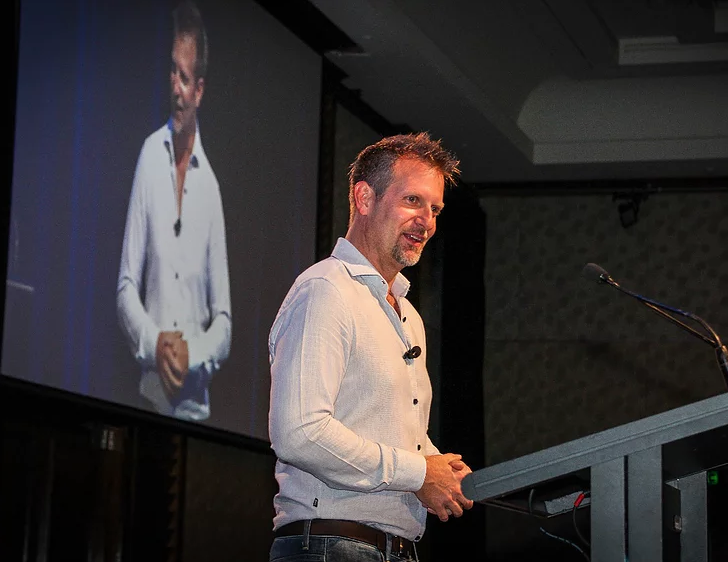About Shane Krider

The Host of the Popular Podcasts:
Shane Krider is a highly successful entrepreneur and life coach who has been a constant student of leadership development and personal development for twenty years. His desire to learn how to increase business results propelled him into the world of personal development. It was within this sector that Shane found professional and personal success.
Shane started his first business at 26-years old, working as an independent sales agent in the travel industry. His drive, passion and natural entrepreneurial abilities saw him achieve momentous success and within just two years he’d become a self-made millionaire.
An avid entrepreneur, Shane is continually expanding on his success, utilizing his passion for personal development and talent for public speaking, to launch new business ventures. Krider’s interest in the human spirit led him to be the Executive Producer of five documentary films. One of which, Unbeaten, was shortlisted for an Oscar.
Krider greatly values his wife and three children, and loves the opportunities his success has brought them. Being able to constantly travel together, while maintaining his successful business is a fortunate lifestyle they enjoy.
Learn more about Rachel and Shane Krider‘s
popular podcast and community!


5 Ways To Boost Your Mindset For Success
Everyone wants to know the secret to success, but the reality is that there are so many factors that go into what makes one truly successful. Maintaining a steady, healthy mindset can go a long way towards helping you stay on the path to success.
Below are five ways to boost your mindset for success today.
Learn lessons from your mistakes. Anyone who has achieved success can rattle off a list of failures they encountered along the way. Building a business from the ground up and not making mistakes along the way is just not the reality. However when you are making these mistakes, be sure you are learning from them. Make sure you are gaining something from each setback. Learn that every loss is a win if you let it be. So if you’ve experienced a failure, don’t beat yourself up. Brush it off, analyze what happened, and determine how you can do things differently in the future, and move on.
Set small goals as stepping stones to your success. Sometimes when we get caught up in the daily grind, we get so focused on not having reached the end goal of success. So take time to set small, frequent goals, and reward yourself in some manner after achieving them. The best way to do this is to write out a big lofty goal, and under that goal, list all the “mini goals” you need and focus on each step by setting aside non-negotiable, realistic blocks of time.
Be flexible. Not everything is going to be according to plan and maintaining a level of emotional fitness is key. You’re not always going to achieve all of your goals on time or even at all. And that’s ok. That’s life. Be open to making adjustments as they arise. If you find yourself in a bind, consult a colleague who may be able to offer you a perspective you hadn’t been able to see.
Get inspired. Take time each day, even if it’s 10 minutes, to expose yourself to something that truly inspires you. Read the blog of someone you admire. Even writing a thank you note to someone who went out of their way for you can help.
Engage in positive self-talk. Sometimes we can be our own worst enemies, so it’s important to be conscious of how we talk to ourselves. Encourage yourself. Compliment yourself. Reward yourself. But also make sure to stay realistic and grounded. It’ll help you stay focused on your journey and realistic about what you can achieve and how soon.

Emotional Intelligence in the Workplace
Emotional intelligence, or EQ, is one of the most powerful personal qualities in business. In fact, 71% of hiring managers said that they place more value on a high EQ than a high IQ! Employees with a good EQ are excellent listeners, strong, empathetic team players, and are good at staying calm under pressure.
What is EQ?
Emotional intelligence has many components, but it boils down to being able to manage and interpret your feelings and emotions, as well as those of the people around you. EQ also includes:
Empathy
Empathy is often confused with sympathy, but the two are actually quite different. Empathy involves sharing in the emotional experience that another individual is having. Empathetic people can feel the emotions of other people, and genuinely understand what they are going through. They’re willing to make the changes necessary to better meet the needs of others.
Self-Awareness
People with a high EQ are self aware. They know their own strengths and limitations. They’re highly adaptive, and take criticism well instead of becoming offended. They understand their moods and emotions, but are never controlled by them. Instead, these individuals think before speaking, and are considerate of the impact that their words have on others.
Strong People Skills
Because of their empathy and self-awareness, individuals with a strong EQ possess excellent people skills. They can form strong bonds with their friends and coworkers, and are passionate about contributing to their team and helping others reach their full potential.
How to Increase Your EQ
If you want to increase your emotional intelligence, there are many ways to practice! The following suggestions will help you improve:
Think Before Speaking
Be purposeful about taking time to pause and think before you speak to someone. This ensures that you take time to process, and don’t say anything rashly. Make sure that you listen to others before speaking. This will help you better understand their emotions, learn about what they need, and work to develop a solution for both parties. By pausing, you’ll shift your focus from your own needs to the needs of others.
Speak with Kindness
Be intentional about speaking to others with kindness. Make sure to praise other people! When you speak positively to others, there’s less of a chance that they will speak and act defensively. They’ll also be more open to listening to you if you’re kind. Don’t be afraid to apologize if you’ve hurt someone’s feelings or misunderstood them!
Emotional Intelligence is a highly sought-after quality. By practicing and improving your EQ, you’ll be able to build strong workplace connections and become a better employee.

How to Properly Evaluate a Business Opportunity
No matter where you are in your business venture, whether you are starting a small business or purchasing an existing company or franchise, you need to take steps to evaluate the business’s potential and your abilities to make it work. You will need to research the risk and benefits of the opportunity at an in-depth level. The evaluation of business requires financial, product and human resource analysis. Make sure you review the potential pitfalls inherent in the business to make an informed decision and increase your chances of success.
Self-Analysis
Most businesses fail because of poor management and the owner’s inability to manage their resources. So, before you even start researching the feasibility of your idea and the market you plan on entering. Start by evaluating your talents, desires, and goals. Consider your willingness to take risks as well as the amount of time and energy you’ll need to make the business a success.
Financial Components
After you learn everything there is to learn about the investment required to purchase the existing business or franchise or the start-up costs you’ll need initially, evaluate your resources. The components that make up a financial assessment includes the amount you have in your savings to add to the initial investments.
Market Research
Perform an extensive market research project to determine the feasibility of your business. In addition to gleaning statistics of trends and current customer buying patterns, you need to know who your customers are, where they are located and what kind of competition exists in your area.
Risk Assessment
A complete evaluation of a business opportunity includes a risk assessment. An honest appraisal of the potential risks inherent in your new business can help you prepare for possible problems and decide whether the risks are worth the investment. The general state of the economy, weather events, and your competition’s competitiveness are some risk assessment factors that could negatively affect your business.
Support
Finally, evaluate the amount of support you expect to receive from your family and the community. You’ll most likely spend an inordinate amount of time in the initial stages of opening your new business, which could affect your family relationships.